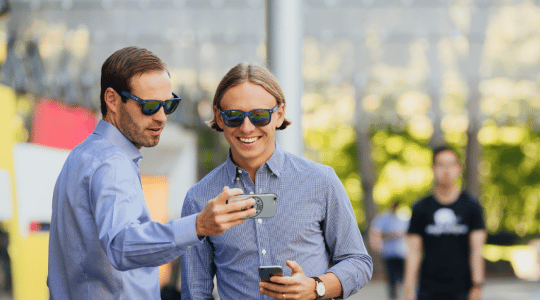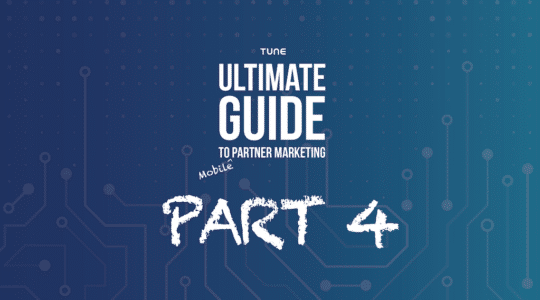While the ecommerce and mobile industry is heating up, the truth is that 95% of all commerce still happens offline. However, the average person spends at least 3 hours per day on their mobile device – and much of that time is spent in gaming and entertainment apps. As such there is a huge need for advertisers to learn how to leverage this time and real estate to connect consumers from the online world to the offline, as this is where most of consumer action still happens.
At the LOGIN conference in San Francisco last week, co-founder of TrialPay Terry Angelos spoke about how companies need to figure out how to drive that ROI from online clicks to natural transactions. As he said, once they have that ROI equation, they will know to run ads that will work to further enhance the real world experience.
To explain the kind of opportunity that lies in front of brands to drive online behavior to the offline world, Angelos used Starbucks as an example. In San Francisco, the Seattle-based coffee chain has positioned about six billboards positioned throughout the city, which sees about 70,000 people a day. However, there’s no measurable way to track the ROI of these billboards. Comparatively, the game Candy Crush (as an advertising medium) reaches about the same number of people in the same area. Angelos wondered what kind of more measurable ROI Starbucks would see if the coffee chain advertised in the game instead of the billboards.
Of course, there are plenty of apps already attempting to close this gap. Angelos pointed out a few apps that are already doing this, and doing this well, using loyalty as a basis for connecting consumers online to offline experiences. One such app is Kiip, which Angelos explained focuses on real world rewards and delivering them at points of achievement inside the game. As he said, if you reach certain levels, you’ll receive a real world reward, such a a smoothie. “Its a way the company can reach the audience in a way they never could have before,” he says.” Another app that bridges this gap is Shopkick, a reward and loyalty app where users can redeem currency for real world items and discounts.
Angelos also pointed out an app he especially likes that’s in the gaming industry. This app, a casino game, enables users to redeem points for real world rewards in Vegas, such as tickets for Cirque Du Soleil or a night at the Mirage. As Angelos said, “These are very valuable customers to MGM, and if they can get you to come to Vegas this weekend instead of next weekend, that’s ROI positive. If I can comp you a show, you might spend that $200 on the casino floor instead. It brings you into their physical space, and I think that’s something that other companies will replicate.”
Of course, Trialpay may have figured out how to connect consumers from the online experience to online better than anyone else. With Trialpay, you earn rewards by shopping at specific stores that currently have offers for consumers. Consumers register their payment card, and when you make the purchase associated with the merchant the consumer discovered online, Trialpay intercepts the transaction to track. This is the very core of connecting an online to offline experience, and as Angelos said, “This is a real way to tap into what is a very large opportunity for advertisers to tap into the consumers walking around with their phones all day.”
Without a doubt gaming and entertainment is the largest real estate on our phones as people spend more time engaged playing games than anything else. There’s a huge opportunity to command people to walk into stores through these types of mobile apps. While different apps and retailers have attempted to conquer this gap in various ways, it appears no one has truly solved this problem, but as mobile overtakes the desktop and consumers spend even more times on their phones, it is a challenge that marketers and advertisers will need to take on much sooner than later.
Author
Becky is the Senior Content Marketing Manager at TUNE. Before TUNE, she handled content strategy and marketing communications at several tech startups in the Bay Area. Becky received her bachelor's degree in English from Wake Forest University. After a decade in San Francisco and Seattle, she has returned home to Charleston, SC, where you can find her strolling through Hampton Park with her pup and enjoying the simple things in life.




Leave a Reply
You must be logged in to post a comment.